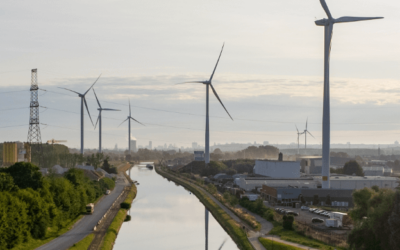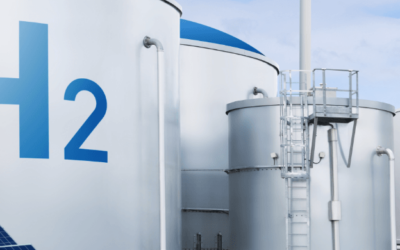Prinsjesdag 2020 provides insight into the government’s plans for the coming year and the corresponding budgets. In the article below, we present an initial selection of the most important developments in the field of energy and climate.
Energy and Climate Transition: Milestones in 2020 and 2021
On the road to a better climate, the Netherlands is taking some big steps in 2020 and 2021. Major milestones this year include the drafting of the concepts for the Regional Energy Strategies (RESs), the ‘National Vision of Market Development for Energy Transition’, the presentation of the first ‘Climate Paper’ (in October), and the first opening of the new SDE++ subsidy (in November). Important milestones in 2021 will include the implementation of the CO₂ tax for industry, the presentation of the final RESs and the adoption of the municipal ‘Transition visions’.
SDE++ as an important subsidy instrument for climate targets
The most important subsidy instrument on the way to a better climate will be the SDE++ subsidy. The main objective of this scheme is to achieve 49% emission reductions by 2030 and the associated cost-effectiveness. The SDE++ is a broader successor to the previous SDE+ scheme, with grants to stimulate not only renewable energy production, but also other industrial CO₂ -reducing techniques. The first application round will start in November 2020, with a budget of 5 billion euros. The publication of the scheme is expected shortly and will provide more clarity on the new subsidy categories (such as aquathermia, wind, CCS, electrolysis and electric boilers).
It was announced on Prinsjesdag 2020 that further extensions of the SDE++ will be reviewed in early 2021. Other cost-effective CO₂ -saving techniques may then be added. The SDE++ round of 2021 is planned for autumn 2021, with probably another budget of 5 billion euros.
Subsidy for making industry more sustainable, new tender green hydrogen
Of course, the budget plans also consider the sustainability of Dutch industry. From the climate envelope, an amount of more than 60 million euros will be made available for this purpose in 2021. These funds will be used for:
- Hydrogen: 10 million will be made available via the (more generic) DEI+ subsidy scheme, as well as an entirely new tender scheme aimed at scaling up green hydrogen production capacity. This will also be an important part of the new Hydrogen Programme, which will set aside 35 million euros annually for this purpose from 2021 onwards!
- CO₂ reduction industry: 35 million for pilot and demonstration projects to accelerate cost-effective CO₂ reduction in industry (mainly through the DEI+ scheme and the TSE scheme for feasibility studies).
- CCUS: 15 million to subsidise feasibility studies and pilots. The aim is to test and demonstrate the application of CCUS technologies (capture, transport, reuse and storage of CO₂ ).
Industrial companies can also make use of the recent ‘accelerated climate investment’ scheme (also known as VEKI subsidy or VKI). This subsidy can be applied for as long as the budget is available (until mid-December 2021 at the latest). Prinsjesdag 2020 showed there will be no new VEKI round in 2021.
Broadly applicable subsidies for the energy sector: DEI, HER, MOOI
There are, of course, many other long-term subsidy schemes for the energy sector. Here we briefly outline what the Prinsjesdag 2020 budget plans say about the most important schemes:
- DEI+ subsidy: this scheme now provides subsidies for pilots and demonstrations of solid climate and energy innovations. The current application round is open this year as long as the budget is available. There will be a new DEI+ round in 2021. What is new is that in 2021 the scheme may also provide subsidies for demonstration projects in the field of hydrogen, CCUS and advanced biofuels.
- The HER+ subsidy scheme has recently been extended and provides subsidies for important innovations that contribute to the energy transition (with an emphasis on cost-efficiency of new solutions). The subsidy round has recently started. Applications can be submitted as long as the budget is available (and until the end of March 2021 at the latest). A new round of applications will also start in 2021.
- MOOI subsidy (around the themes ‘Built Environment’, ‘Wind at Sea’, ‘Renewable Energy on Land’, and ‘Industry’): the first application round of 2020 will not be followed up until 2022 (not in 2021). However, there is good news about the MOOI budget: an extra 30 million euros will be made available for projects within the current round that fall within the theme ‘Built Environment’!
Other subsidies and stimulus money announced on Prinsjesdag: EFRO, SDS and ISDE
The news about the Dutch EFRO programmes is also striking. These are large subsidy programmes aimed at stimulating regional economies. A new programming period 2021-2027 for EFRO (and INTERREG) is currently under preparation. A great deal of attention will then again be paid to innovations that contribute to the transition to a low-carbon/circular economy. In connection with the Corona crisis, the government also wants to extend the current EFRO programmes by two years, according to the budget. The Ministry of Economic Affairs will allocate a total of 30 million euros for this purpose. For the new programming period, this will mean a total of 152 million euros in Dutch co-financing (in addition to the European EFRO funds).
The shipbuilding sector will also be able to make use of the Sustainable Shipbuilding Subsidy Scheme (SDS) in the coming years. The scheme focuses on innovations that make shipbuilding more sustainable. The scheme will continue to be open to applicants for the next three years, with a subsidy budget of €4.6 million per year.


